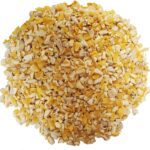Can you give a dog deer bones? The answer is not as straightforward as you might think. While deer bones may seem like a natural treat for your furry friend, there are actually some potential risks and complications to consider.
In this article, we’ll delve into the nutritional value of deer bones for dogs, explore alternative options, and discuss the ethical implications of giving your dog deer bones.
Deer bones can pose several health concerns for dogs. They are hard and can splinter, which can cause damage to the dog’s mouth, throat, or digestive tract. Additionally, deer bones can contain bacteria that can make your dog sick. If you’re considering giving your dog a deer bone, it’s important to weigh the risks and benefits carefully.
Health Concerns

Deer bones pose significant health risks to dogs, as they can cause severe digestive issues and other complications. These bones are typically hard and brittle, making them prone to splintering when chewed.
The sharp edges of splintered deer bones can lacerate a dog’s mouth, esophagus, or intestines, leading to pain, bleeding, and infection. Ingesting these bones can also result in gastrointestinal obstruction, which occurs when the bone becomes lodged in the digestive tract and blocks the passage of food and water.
Digestive Issues
Consuming deer bones can disrupt a dog’s digestive system in several ways:
- Esophageal Perforation:Sharp bone fragments can puncture the esophagus, causing internal bleeding and infection.
- Gastric Ulcers:Bone fragments can irritate the stomach lining, leading to ulcers and internal bleeding.
- Intestinal Obstruction:As mentioned earlier, bones can become lodged in the intestines, causing a blockage and preventing the passage of food and water.
- Pancreatitis:Ingesting fatty bone marrow can trigger pancreatitis, a serious inflammation of the pancreas.
Nutritional Value

Deer bones possess a limited nutritional value for dogs compared to other sources. They primarily consist of calcium and phosphorus, which are essential minerals for bone health. However, the bioavailability of these minerals from deer bones is lower than that from commercial dog food or supplements.
Can you give a dog deer bones? The answer is no, as deer bones can splinter and cause serious injury to your dog. If you’re looking for a more comprehensive guide on hunting deer, check out Can You Kill a Deer with a 20 Gauge: A Comprehensive Guide for Hunters . This guide covers everything you need to know about deer hunting, from choosing the right weapon to field dressing your deer.
And remember, never give your dog deer bones!
Potential Supplementation
While deer bones do not provide significant nutritional value, they can potentially supplement a dog’s diet in moderation. They can serve as a source of recreational chewing, providing mental and dental stimulation. However, it’s crucial to ensure that the bones are properly prepared and given in moderation to avoid any potential health concerns.
Alternative Options

Deer bones may be tempting, but they pose risks to your furry friend. Fortunately, there are plenty of safe and healthy alternatives available that can satisfy your dog’s chewing needs without compromising their well-being.
When selecting an alternative, consider your dog’s size, chewing habits, and any specific dietary requirements. Here’s a list of options to explore:
Rawhide Bones
- Benefits:Inexpensive, highly palatable, and provides mental stimulation.
- Drawbacks:Can be a choking hazard if swallowed in large pieces, and some dogs may be allergic.
Nylon Bones
- Benefits:Durable, easy to clean, and can help maintain dental hygiene.
- Drawbacks:Not as palatable as other options, and some dogs may chew aggressively, causing damage to the bone.
Antlers
- Benefits:Natural, long-lasting, and rich in minerals.
- Drawbacks:Can be expensive, and some dogs may not find them as appealing as other alternatives.
Dental Chews
- Benefits:Designed to promote dental health, reducing plaque and tartar buildup.
- Drawbacks:May not provide as much chewing satisfaction as other options.
Carrots
- Benefits:Low in calories, high in fiber, and can help clean teeth.
- Drawbacks:Not as durable as other alternatives, and some dogs may not be interested in them.
Conclusion
The best alternative for your dog depends on their individual needs and preferences. By considering the factors discussed above, you can choose a safe and satisfying option that will keep your furry friend happy and healthy.
Training and Behavioral Implications

Offering deer bones to dogs can potentially lead to behavioral issues, particularly if the dog is not properly supervised or trained. Here’s an overview of the potential challenges and how to address them:
Managing Resource Guarding
Deer bones can be highly valued by dogs, which may trigger resource guarding behavior. This can manifest as growling, snapping, or even biting when the dog perceives its bone is being threatened.
To prevent resource guarding, introduce deer bones gradually and under strict supervision. Allow the dog to enjoy the bone in a quiet and safe space. If the dog shows any signs of aggression, remove the bone and redirect their attention to a different activity or toy.
If you’re considering giving your dog deer bones, it’s important to be aware of the risks involved. Deer bones can splinter and cause serious injuries to your dog’s mouth, throat, or intestines. In some cases, they can even be fatal.
If you’re looking for a safe and healthy alternative to deer bones, consider giving your dog a rawhide bone or a bully stick instead. And if you’re interested in hunting deer, be sure to check out this article: Can You Hunt Deer With a .22 Rifle? It’s got all the information you need to know about choosing the right rifle and ammo for the job.
Socialization Challenges
Dogs that are given deer bones regularly may become possessive and less social around other dogs. They may guard their bone aggressively, even from familiar dogs or people.
To mitigate this issue, ensure that the dog has plenty of opportunities to socialize with other dogs and people in a positive and controlled environment. Encourage friendly interactions and reward the dog for being calm and respectful around others.
It’s a big no-no to give your dog deer bones, as they can splinter and cause serious injuries. Speaking of deer, have you ever wondered how smart they are? Deer intelligence is actually quite remarkable. They can recognize human faces, navigate complex terrain, and even communicate with each other using body language and vocalizations.
So, while you shouldn’t give your dog deer bones, you can definitely appreciate the intelligence of these fascinating creatures.
Destructive Behavior
If a dog is left unattended with a deer bone, it may engage in destructive behavior to access the marrow inside. This can include chewing on furniture, walls, or other objects.
To prevent destructive behavior, provide the dog with safe and appropriate chew toys that satisfy their chewing needs. Supervise the dog while they are chewing on the bone and remove it if they start to become destructive.
Ethical Considerations

Providing deer bones to dogs raises ethical concerns that warrant consideration. These concerns primarily revolve around the use of animal products for pet food and the implications it has on responsible pet ownership.
One of the primary ethical concerns is the potential for deer bones to be obtained from animals that have been hunted or killed for their antlers or meat. This raises questions about the treatment of animals and the sustainability of such practices.
Additionally, the use of animal products for pet food has implications for the environment, as the production of meat and animal-based products contributes to greenhouse gas emissions and other environmental concerns.
Responsible Pet Ownership, Can you give a dog deer bones
Responsible pet ownership entails making ethical choices that prioritize the well-being of animals. This includes considering the source of pet food and its potential impact on the environment and animal welfare. Pet owners should be aware of the ethical implications of providing deer bones to their dogs and make informed decisions based on their values and beliefs.
Final Conclusion

Ultimately, the decision of whether or not to give your dog deer bones is a personal one. However, it’s important to be aware of the potential risks and benefits involved. If you do decide to give your dog a deer bone, be sure to supervise them closely and take the bone away if they start to chew on it aggressively.
FAQ Explained: Can You Give A Dog Deer Bones
Can deer bones kill a dog?
Yes, deer bones can kill a dog if they splinter and cause internal damage.
Can dogs digest deer bones?
No, dogs cannot fully digest deer bones. The bones can cause digestive upset and blockages.
What are some safe alternatives to deer bones for dogs?
Safe alternatives to deer bones for dogs include bully sticks, antlers, and rawhide bones.







